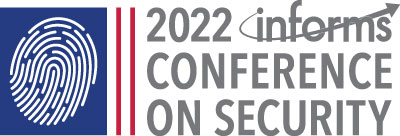Monday, August 29
| 8:30am-5:30pm | Exhibit Hall open |
| 9-10:10am | Welcome & Keynote: General Norton Schwartz, IDA |
| 10:10-10:30am | Coffee break |
| 10:30am-12noon | |
| 12noon-1pm | Lunch |
| 1-2:30pm | NSF Program Managers Panel |
| 2:30-2:45pm | Coffee break |
| 2:45-3:40pm | Keynote: Josh Lospinoso, Shift 5 |
| 3:40-4pm | Coffee |
| 4-5:30pm | |
| 6:30-8pm | Reception |
Tuesday, August 30
| 9-10:10am | Keynote: Joannes O. Royset, Naval Postgraduate School |
| 9:30am-4:15pm | Exhibit Hall open |
| 10:10-10:30am | Coffee break |
| 10:30am-12noon | |
| 12noon-1pm | Lunch |
| 1-2:30pm | |
| 2:30-2:45pm | Coffee break |
| 2:45-3:40pm | Keynote: Rajan Batta, University at Buffalo |
| 3:40-4pm | Coffee |
| 4-5:30pm |


